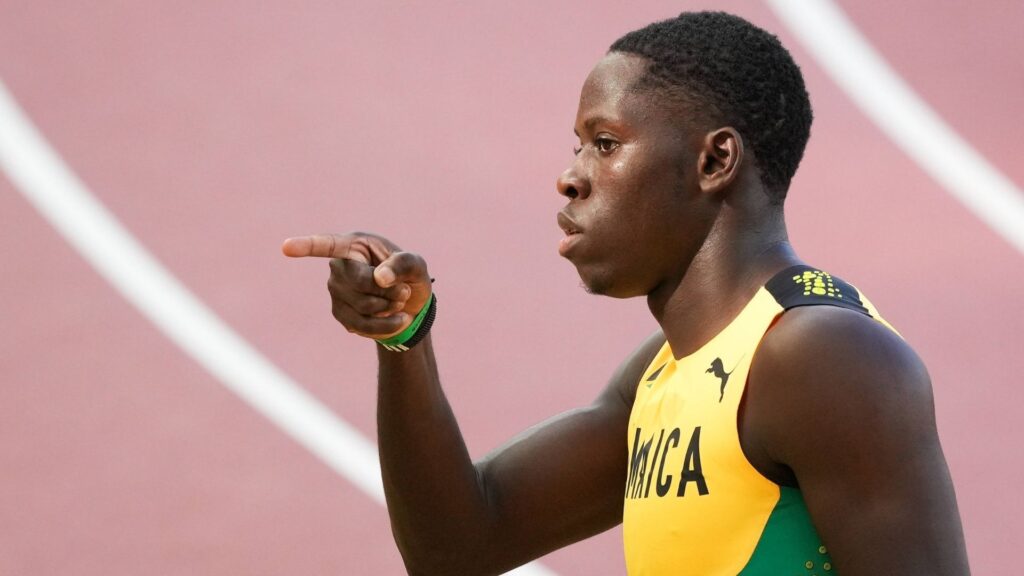On Sunday night, Jamaica celebrated a new sprint king as Oblique Seville stormed to the men’s 100m world title, becoming the nation’s first champion since the golden era of Usain Bolt. Yet even as he revelled in victory, Seville showed his humility and clarity of thought, paying tribute to the legend who inspired him.
When asked to design the perfect sprinter, many expected Seville to piece together attributes from across eras – lightning starts, mental toughness, and explosive top speed. Instead, his response was immediate and simple: “Usain.” For him, the blueprint of greatness had already been written. Seville only added that a blend of Bolt’s devastating finishing speed and his own strong starts would create the flawless athlete.
The new champion, however, does not entirely share Bolt’s views on the future of sprinting. Recently, Bolt suggested the current generation lacked the talent to reach the 9.6-second mark once hit by himself, Yohan Blake, and Tyson Gay. Seville disagrees, insisting it is only a matter of time. Having clocked 9.77 seconds to secure gold in Tokyo, he believes today’s sprinters are edging closer to that barrier and only need the right breakthrough moment.
Physically, Seville contrasts sharply with the towering Bolt. Standing at 5ft 6in and weighing 11st 6lb, his compact frame carries different challenges. He admits that his size leaves little room for technical mistakes, meaning precision and discipline are essential. Preparation for him is also spiritual – finding peace through prayer and Bible reading before competition, in contrast to Bolt’s more relaxed lifestyle.
Both athletes share one constant: the guidance of legendary coach Glen Mills. Seville credits Mills for shaping his path, recalling how the coach told him years ago that success would come with patience. That prophecy has now been fulfilled. Beyond technique, Mills has instilled mental strength, guiding him in sport and life.
Since Bolt’s retirement in 2017, the 100m crown has passed through several hands – from Justin Gatlin to Christian Coleman, Fred Kerley, and Noah Lyles. Seville now carries the hope of stability, though he acknowledges the challenge of injuries and the unpredictability of elite sprinting.
As for Lyles’s psychological tactics, Seville remains unfazed. He sees the American’s bravado as part of the spectacle, respecting it as entertainment but refusing to be distracted. With a gold medal secured and his eyes set on even faster times, Seville’s rise signals not just Jamaica’s return to sprint dominance, but also the possibility of a new era in sprinting excellence.

